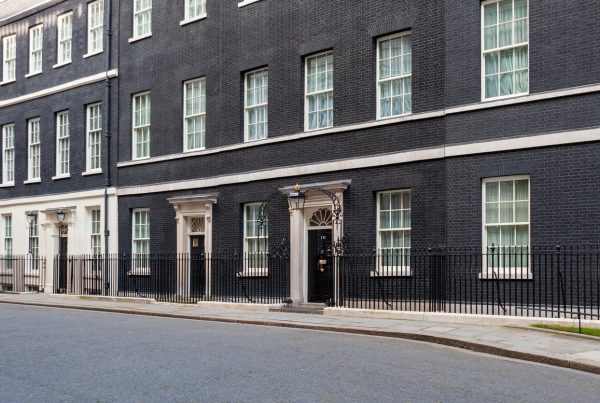The National Sector Partners Group (NSPG) has issued the following response to the Chancellor’s Autumn Budget 2024
The Chancellor has said that this Budget “marks an end to short-term ism” with promises to “fix the NHS, rebuild Britain (and) restore economic credibility”. However, the Chancellor has missed an opportunity to provide crucial detail about the significant role sport, recreation and physical activity can play in driving a healthier and more productive and prosperous nation,
We know economic growth is intrinsically linked to the health and activity levels of the nation. The announcements made yesterday build on the vision to develop a 10-year NHS plan that shifts healthcare from hospital to community, and from treatment to prevention – two areas in which oursector can play a significant role. We will continue to work with the Government to understand how they will unlock this potential of our sector as further consultation takes place and details emerge.
Further announcements of funding to support children and young people through investment in breakfast clubs and support for elite and grassroots sport through investment in multi-use facilities are welcomed by our sector, as a way to encourage greater daily physical activity for all generations. Integral to this is a highly skilled sport and physical activity sector workforce, and the recognition today of the role of skills development in driving economic growth is positive.
As with businesses across the country, and particularly for a sector with a large proportion of entry level positions and young employees, there is a concern about the immediate impact of rises in employer NIC and increases in minimum and national living wage, particularly when paired with the reduction in Business Rates relief and the measures outlined in the Government’s ‘Employment Rights Bill’.
While the increase in the employment allowance threshold will help support smaller businesses to absorb these increased costs to an extent, we are keen to ensure that these extra costs will not need to be passed onto consumers in order to keep sports clubs and facilities open, as this could impact activity levels across the nation.
The NSPG has continually demonstrated the value of increasing levels of physical activity among the population in direct savings for the NHS, increased productivity and wellbeing benefits. Sport England’s recent social value report detailed that our sector is directly responsible for generating over £100 billion in social value and relieving pressure on the NHS through £10.5 billion a year in health and social care savings.
We recognise that the Government is still developing the detail underneath many of these announcements, and the NSPG will continue to positively engage with the Government to position sport, recreation and physical activity as a key part of the delivery of their five missions.
We will continue to challenge our political leaders to commit to making the UK the most active nation in Europe – and in doing so generate £1bn in healthcare savings and a GDP uplift of £3.6bn a year. Now is the time to take action to make that happen, and we seek further clarification to understand just how the Government plans to work in collaboration with us and in the long-term interests of the country.
Huw Edwards, CEO of ukactive, said: “ukactive members would have awaited yesterday’s Budget from Rachel Reeves wanting to understand the impact on the day-to-day operational costs to their business, and to see the opportunities for growth and development as part of Government’s pledged ambitions for economic growth and improved national health.
“However, the collective increases in National Living Wage, Minimum Wage, and Employer National Insurance Contributions will provide immediate cost pains for members going into 2025 and add to the challenge of already high operating costs.
“While the increase in Employment Allowance threshold and continued (whilst reduced) relief for the sector on Business Rates are worth acknowledging, alongside the commitment to long term business rates reform, it is important the Government appreciates the impact these higher costs will have on businesses that are some of the biggest drivers of physical activity in the country, and that this could potentially have a negative impact on activity levels if costs are reluctantly passed onto customers
“With regards the Government’s ambitions for economic growth and improving national health, the Chancellor announced a raft of positive measures addressing economic inactivity, major infrastructure projects, investment in the NHS, and devolved settlements which could – and should – be aligned with the growth and development of physical activity programmes and services.
“However, the lack of detail from the Government on how sport and physical activity fit into these commitments will frustrate many. It is now important that the Government avoids any vacuum of information regarding the role of sport and physical activity, working with ukactive and its members on the precise role our sector must play in supporting economic growth and taking pressure off the NHS.”
About the National Sector Partners Group
The NSPG is formed of:
Active Partnerships
The Chartered Institute for the Management of Sport and Physical Activity (CIMSPA)
The Sport for Development Coalition
The Sport and Recreation Alliance
ukactive
The Youth Sport Trust.
Through our collaborative work as sector partners, we aim to engage decision makers to improve the operating landscape for the sector and embed sport, recreation and physical activity as a key contributor to wider public policy objectives.
As part of wider work through the National Sector Partners Group (NSPG), in 2022 we published Unlocking the Potential which sets out how sport, recreation and physical activity can be integral to successfully delivering a number of key Government priorities including Levelling Up, driving economic growth, achieving Net Zero and supporting the NHS. The report also proposes a range of systemic interventions including access to investment, tax and regulatory changes and wider policy reform which the coalition believes are key to maximising this role.

More People More Active More Often




